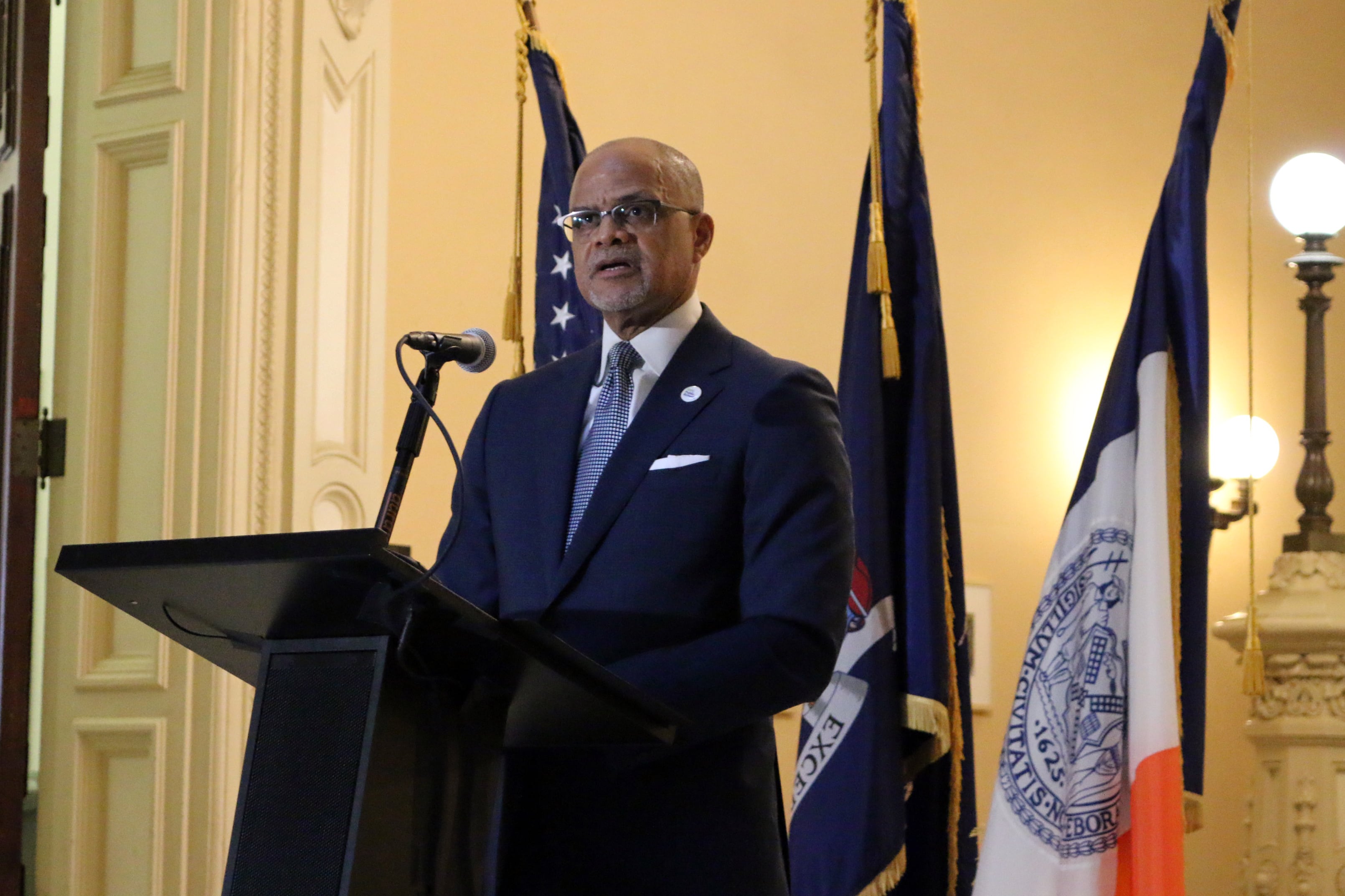Sign up for Chalkbeat New York’s free daily newsletter to keep up with NYC’s public schools.
Schools Chancellor David Banks on Thursday announced the launch of a curriculum meant to uplift the stories of Black people and their contributions to American and global history.
The new resources are part of the city’s Hidden Voices initiative, a multi-year effort that began through a partnership with the Museum of the City of New York and intends to teach New York City students about individuals from diverse backgrounds who often aren’t part of history books and whose stories risk being overlooked.
Called “Hidden Voices: Stories of the Global African Diaspora,” the instructional material “delves into the perspectives, experiences, and impact that peoples of African descent have had — and continue to have — on United States and world history,” according to the city’s Education Department. The first of two volumes launched Thursday.
“We have thousands of years of history and contributions that we have made — not simply to New York, not simply to this nation, but in fact to the world,” Banks said during the announcement at St. Paul Community Baptist Church in Brooklyn. “Everybody needs to know about the contributions that Black people have made in this nation and to the world.”
The Hidden Voices curriculum is one of several efforts across the city to broaden the scope of how Black history is taught in schools.
The city has rolled out a prekindergarten-12 Black studies curriculum across roughly 10 districts as part of a pilot program in recent years. That curriculum was developed through work by the Education Equity Action Plan Coalition — a group of educators, nonprofits, and government leaders. Meanwhile, an Advanced Placement course in African American studies is being taught in nearly 60 schools this year as part of a national College Board pilot — with a broader rollout planned for the fall.
The lessons in the new curriculum were developed in partnership with academic institutions, scholars, and community leaders, according to Deputy Chancellor Carolyne Quintana. It’s intended to be incorporated into the city’s social studies curriculum, which is used in more than 90% of schools.
“In a city this diverse, it’s critical that our students see themselves reflected in the lessons that we teach in our schools,” Quintana said. “Black history should not be limited to February, nor should it be limited to the Black community.”
Emphasizing the importance of teaching Black history in the city’s schools, Banks pointed to a conservative backlash that has arisen in other states in response to efforts to teach the material. In Florida, for example, Gov. Ron DeSantis’ administration has blocked student access to the AP African American studies course. In recent years, communities across the country have seen efforts to limit teaching about race and racism in the classroom.
“We’re here to tell the truth and to teach the truth,” he said. “Black history is American history. Period. Full stop.”
Sonya Douglass, a professor at Columbia University’s Teachers College who helped develop the city’s Black Studies curriculum, praised the release of the Hidden Voices curriculum.
“The Chancellor’s leadership and commitment to teaching the truth through his support of Black history and Black studies curricula is bold and historic given the forces that want to censor what is being taught in schools,” she said.
Other Hidden Voices curriculums have featured stories from Asian American and Pacific Islander history and expanded narratives of individuals who broke norms or expectations of gender and sexuality.
Julian Shen-Berro is a reporter covering New York City. Contact him at jshen-berro@chalkbeat.org.






